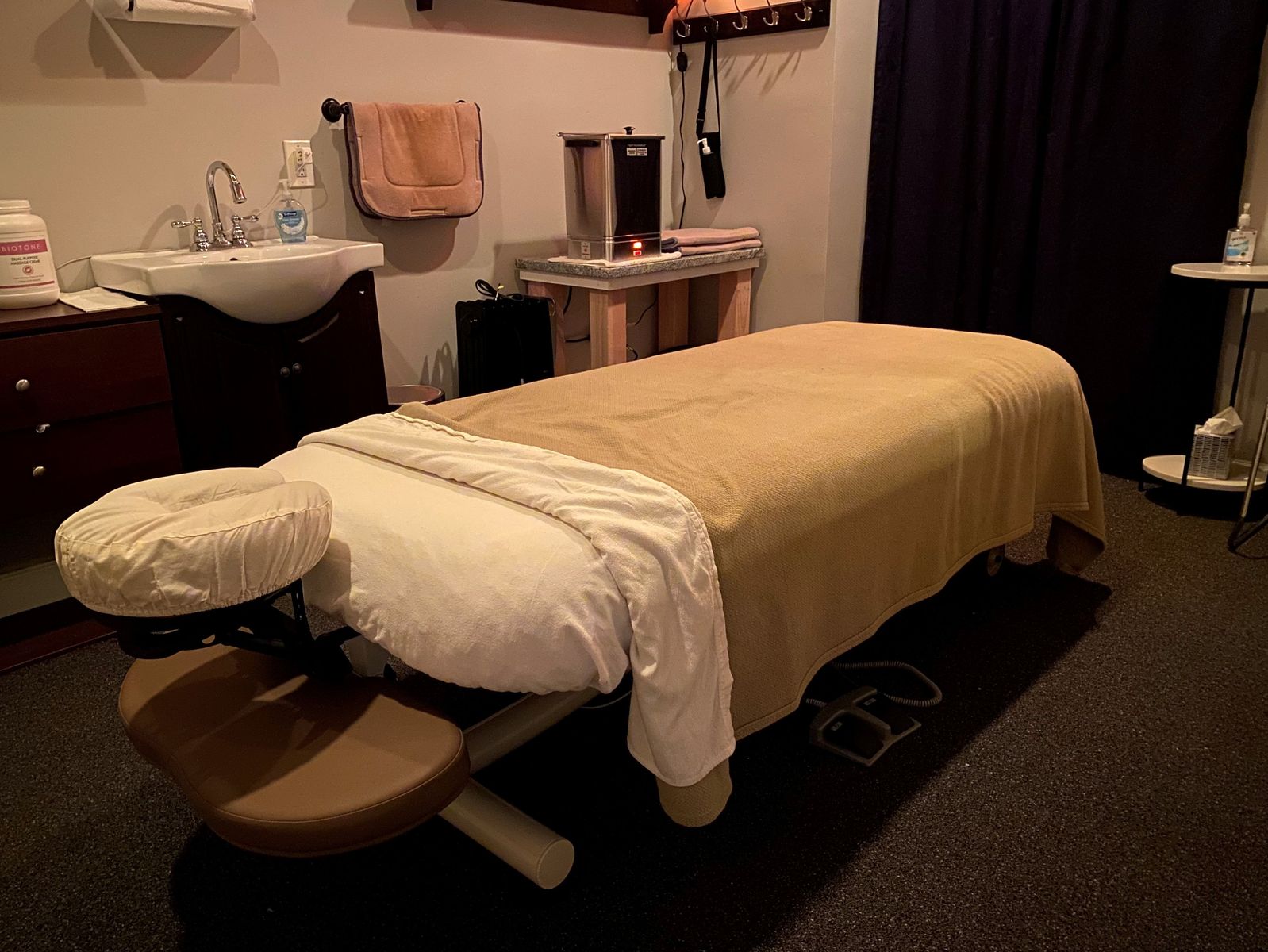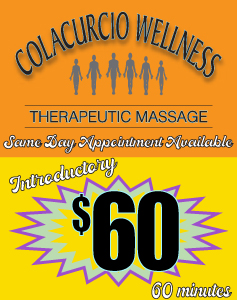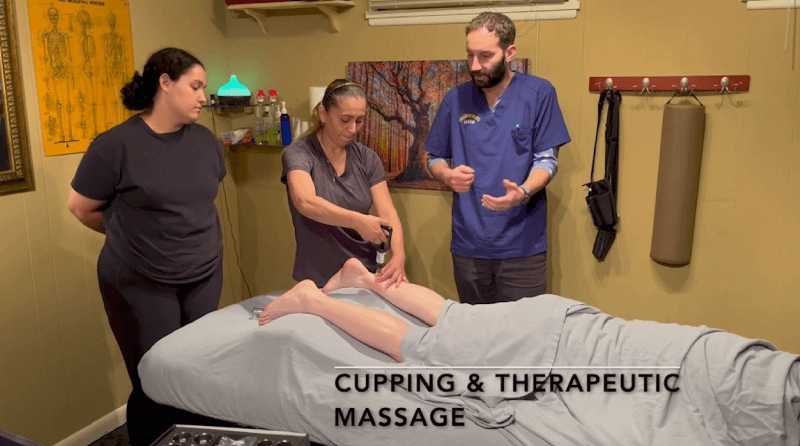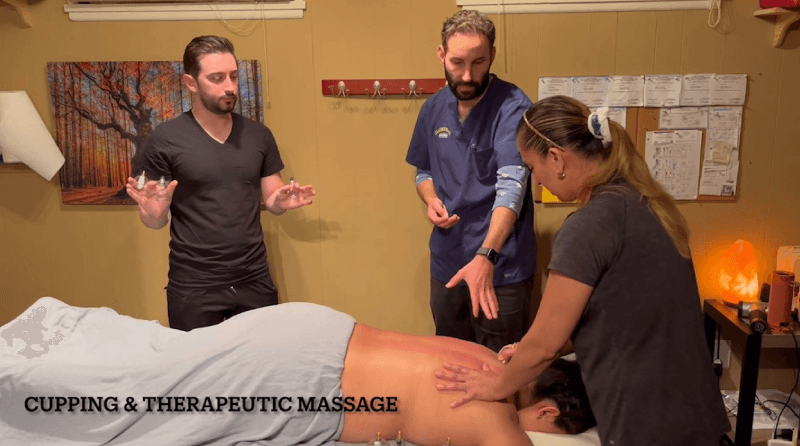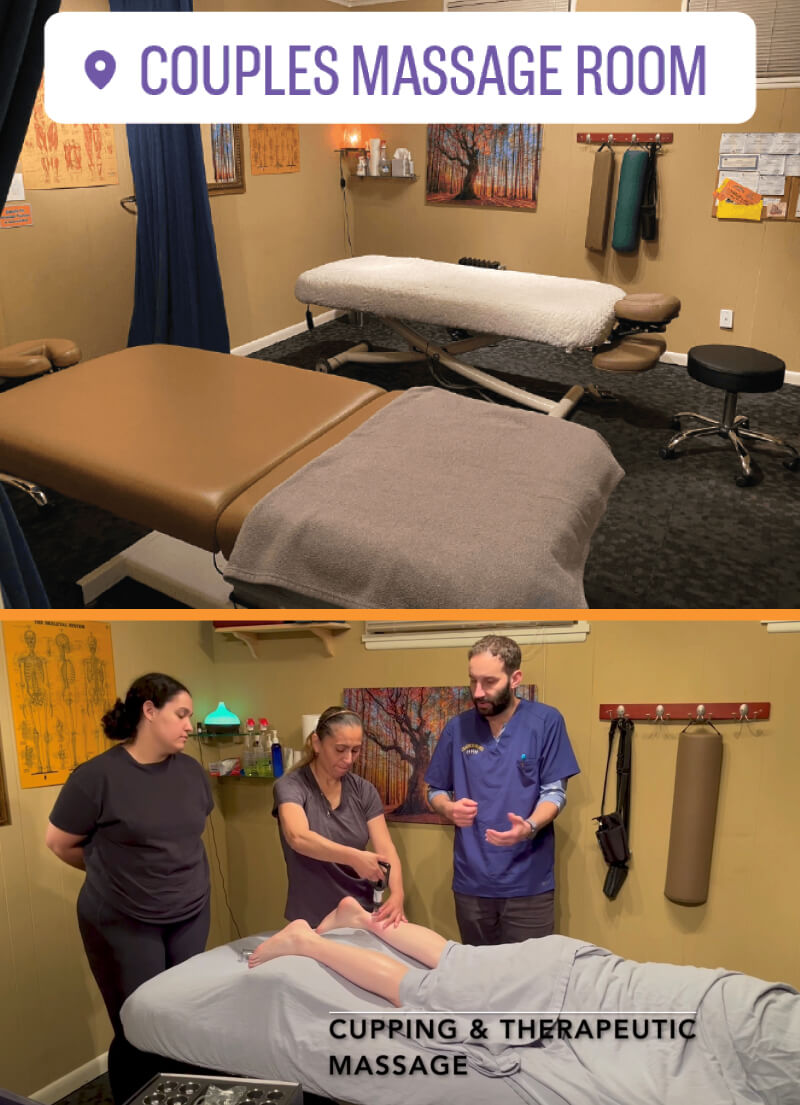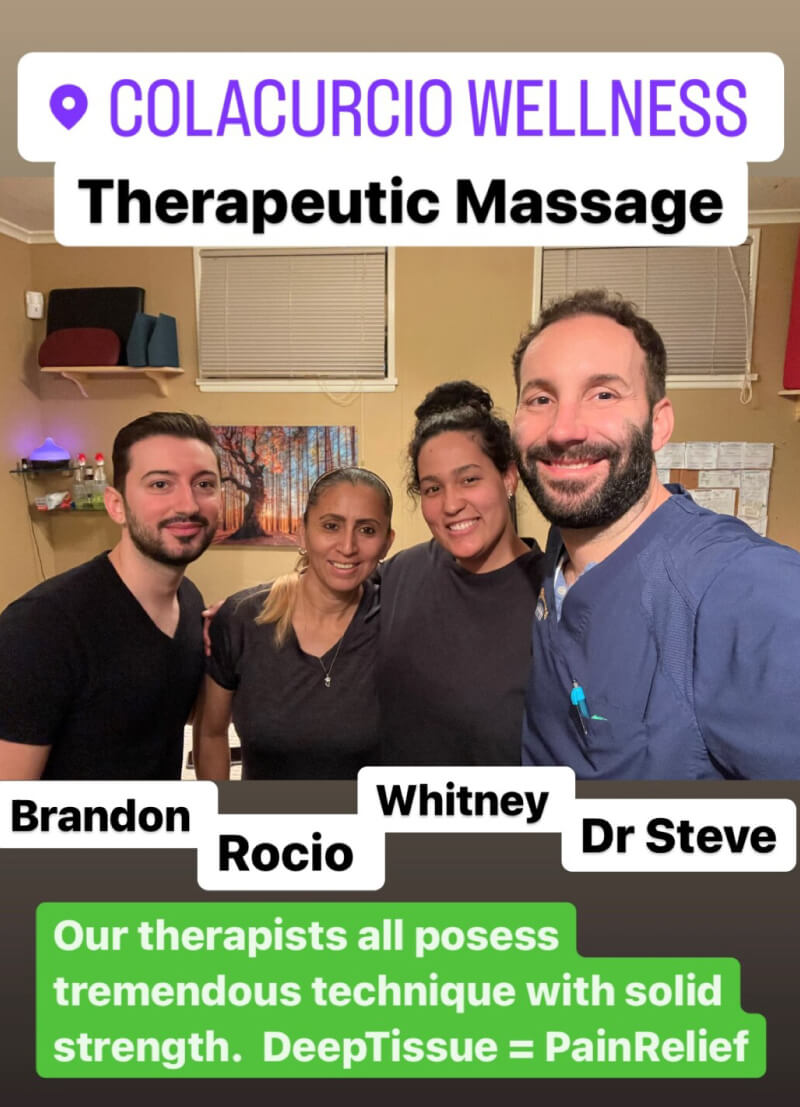Therapeutic Massage
Accelerate Healing & Relax Muscle Spasms
Introductory 60-minute massages — $60
Introductory 75-minute massages — $75
Introductory 90-minute massages — $90
60 minutes — $70
75 minutes — $85
90 minutes — $100
120 minutes — $130
There is a minimum gratuity for each service.
Massage Specialties:
Therapeutic Massage:
Therapeutic massage is a general term that describes any type of massage modality that helps relieve pain, reduce stress, and work on a specific problem—such as a frozen shoulder. People tend to assume therapeutic massage means deep tissue massage, and that they will get a very strong massage.
Medical Massage:
It is also known as clinical massage or treatment massage. There are many massage schools and programs that teach medical massage as a technique. Though medical massage is any massage treatment used to treat specific medical conditions, there is no one technique that is medical massage. In addition to stress relief and relaxation, a medical massage focuses on a medical need. It is often used to manage pain, reduce inflammation, improve circulation, relieve nerve compression, improve digestion, increase flexibility or treat other health care concerns.
Sports Massage:
Sports massage is proven to release and reduce tension in muscles, improve circulation and encourage the removal of waste products such as lactic acid during high intensity activity and can help to relax the body. All of this helps promote recovery and reduces the chance of muscle injury. Three basic forms of sports massaging: pre-event massage, post-event massage, and maintenance massage.
Prenatal & Pregnancy Massage:
A prenatal massage is a full body massage performed by a certified prenatal massage therapist that is includes some Deep-tissue massage, with firm strokes pressing deep into muscles, and Swedish massage, with long strokes to muscles and attention to joint mobility. Shiatsu, with pressure and tapping on acupressure points to stimulate the body’s natural energy (called qi) except for a few modifications with body positioning that can ensure the safety and comfort for both mother and baby.
Lymphatic Drainage Massage:
Lymphatic drainage massage, also known as manual lymphatic drainage, is a gentle form of massage used to relieve painful swelling in your arms and legs caused by lymphedema. Lymphedema often affects people recovering from breast cancer surgery.
-
- After liposuction, lymphatic massage decreases swelling, bruising, and fibrosis (scar tissue formation). Lymphatic massage decreases recovery time and improves results. Lymphatic massage should generally be recommended when risks of bleeding have stopped. Post-operative lymphatic massage usually starts the first week after surgery. Patients usually receive massage every 2–3 days for the first 2 weeks and as required thereafter until tissues soften and edema resolves.
Deep Tissue Massage:
Deep tissue massage is a type of massage technique which uses deep pressure. Combining slow strokes and notable finger pressure, the purpose is to release the tension and tightness held deeply in your muscles and your connective tissues. A deep tissue massage will typically focus on your primary areas of discomfort. (Similar to Therapeutic & Medical Massage)
Swedish Massage:
Swedish Massage is a manual therapy that emphasizes long strokes, kneading and friction motions to encourage proper circulation. The technique involves rubbing muscles together in the same direction as the flow of blood to the heart. (Similar to Effleurage)
Reflexology:
Reflexology is generally relaxing and may help alleviate stress. It’s a type of massage that involves applying different amounts of pressure to the feet, hands, and ears. It’s based on a theory that these body parts are connected to certain organs and body systems.
Trigger Point Massage:
Trigger points are a localized spasm or knot of hyper-irritability in a tissue that, when compressed, is locally tender and, if sufficiently hypersensitive. They can give rise to referred pain and tenderness. In other words: a trigger point in the muscle fiber, may cause pain to be referred to other, more distant parts of the body. “I have seen clients who have been told they have arthritis of the elbow when the problem was actually the bicep muscle being so tight that the arm could not straighten and stress was being placed on the inside elbow joint, causing both pain and an inflammation,”
Trigger points can be implicated in a wide range of common conditions that involve chronic pain, including sciatica, plantar fasciitis, low back pain, trigger finger and frozen shoulder, to name a few.
Myofascial Release Massage:
The goal of myofascial therapy is to stretch and loosen the fascia so that it and other contiguous structures can move more freely, and the patient’s motion is restored. For this reason, myofascial therapy is referred to as ‘myofascial release’ therapy.
Your myofascial tissue is a network of tissue that spreads throughout your entire body. It connects your muscles, joints, and bones. It also provides support to your organs, helping to keep them in place.
If you could see it, your fascia would look like a single sheet of tissue. However, there are multiple layers that work together. In between these layers is a liquid called hyaluronan that provides stretch and encourages free range of movement. When this liquid becomes thick, sticky, or dries up, it can impact the surrounding body parts.
When you feel stiffness or pain in your body, it can originate from different tissues in your body. Myofascial pain is different from other types of pain because it occurs in places where your myofascial tissue meets or crosses. Myofascial pain may be difficult to identify because it can radiate from the area and spread. Usually this tissue feels more elastic and movable. Tight myofascial tissue can restrict movement in your muscles and joints. As you move differently to make up for the loss in movement, you can cause additional tightness without realizing it. This can lead to widespread pain and discomfort.
Payment Details:
We offer our clients a deeply discounted rate as compared to other massage therapy providers. A typical 60-minute massage therapy session elsewhere costs about $100. Since our rates are lower, an average gratuity of 20% for our therapists just isn’t enough. In order to ensure that we are able to attract and retain the most experienced, strong, and professional massage therapists around, we must ask for a minimum gratuity to stay competitive as an employer. We also have a 4-hour cancellation policy (below) that is very important to our great massage therapists.
Payment
Introductory 60-minute massages — $60 (+ $20 minimum gratuity)
Introductory 75-minute massages — $75 (+ $20 minimum gratuity)
Introductory 90-minute massages — $90 (+ $20 minimum gratuity)
60 minutes — $70 (+ $20 minimum gratuity)
75 minutes — $85 (+ $25 minimum gratuity)
90 minutes — $100 (+ $30 minimum gratuity)
120 minutes — $130 (+ $50 minimum gratuity)
We take cash, check, Venmo, Zelle, and Credit Cards (We charge a 3.5% credit card fee). A valid credit card number may be required to hold your reservation.
Late Cancellation Policy
4-hour discretionary cancellation policy:
$40 fee on 60 minutes
$50 fee on 75 minutes
$60 fee on 90 minutes
If you cancel within four hours of your scheduled massage appointment we must compensate our therapists for their time, this is why we would have to charge a discretionary “Late Cancellation Fee”.
If you need to schedule, change, or cancel an appointment Dr. Steve Colacurcio can be reached via text at (201) 888-0868, 24 hours per day.
